Don't let these common cooking habits drain your savings.
11 Kitchen Mistakes That Are Costing You Money
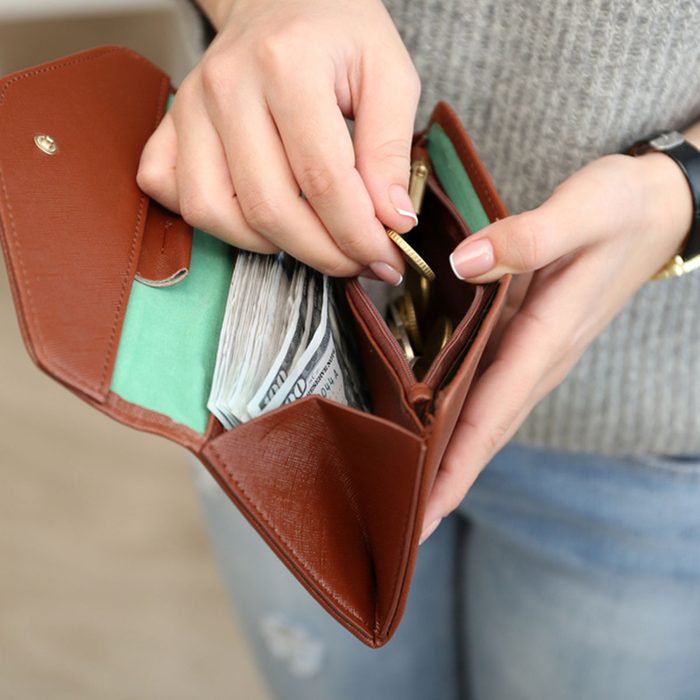
Putting your diet on a budget
When you need to cut back on expenses, the usual financial advice focuses on slashing your entertainment fund, canceling entertainment subscriptions or investing in energy-efficient lightbulbs. No one thinks about spending money on food could be a waste.
Because eating is pretty much a basic necessity, people don’t think it’s a place where they can save—but that’s far from true. Americans wasted an estimated $161 billion worth of food in a single year, according to EPA data. “Without a set budget, it can be easy to look at your bank account at the end of the week and wonder how you spent hundreds on one-off trips to the grocery store or spontaneous pizza orders,” says Justin Bailey, co-founder of Vimvest, a financial planning app. Read on to discover the kitchen habits that are unknowingly draining your bank account, and how staunch the flow.
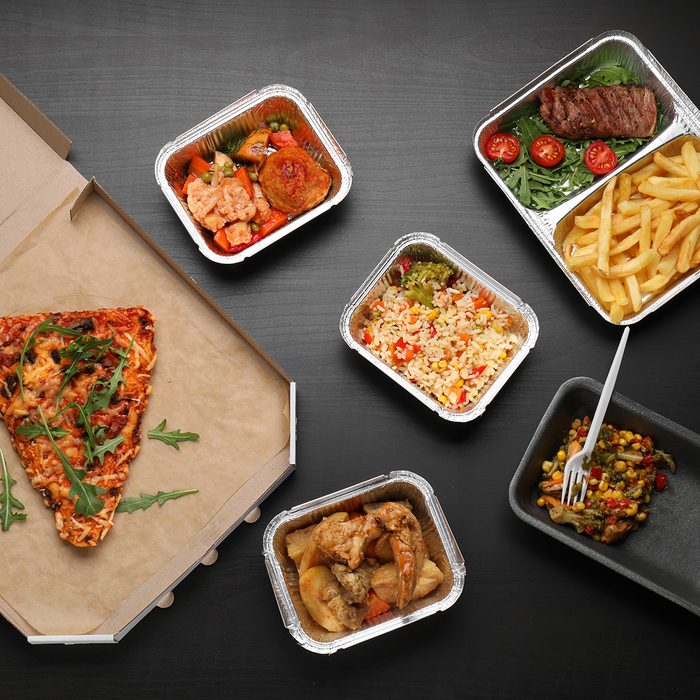
Your food delivery addiction
Everyone has days when they don’t feel like making dinner, but this may help you get in the cooking spirit: According to an analysis done by Forbes last year, ordering out could be costing you five times as much as cooking the same meal at home (not including tip). Even delivery kits that supply ingredients for you to assemble into a meal are around three times as expensive as shopping and cooking yourself.
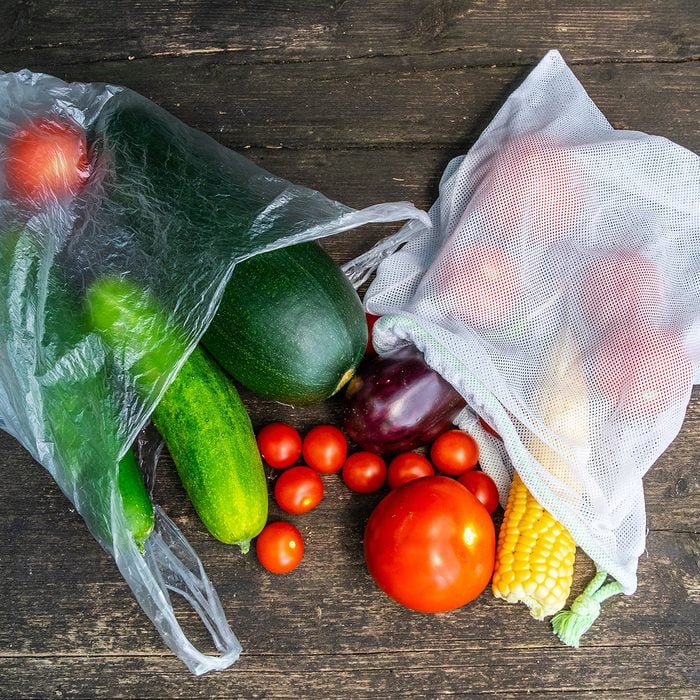
Storing produce improperly
“If you don’t know how to store food properly, it goes bad really quickly,” says Alma Schneider, founder of the blog and consulting company Take Back the Kitchen, and a licensed clinical social worker. “Moisture is your enemy.” She recommends wrapping fragile veggies like lettuce and herbs in a paper towel inside a resealable bag to extend their freshness. You can also dry fresh herbs so they last longer. Here’s how long fresh produce really last.
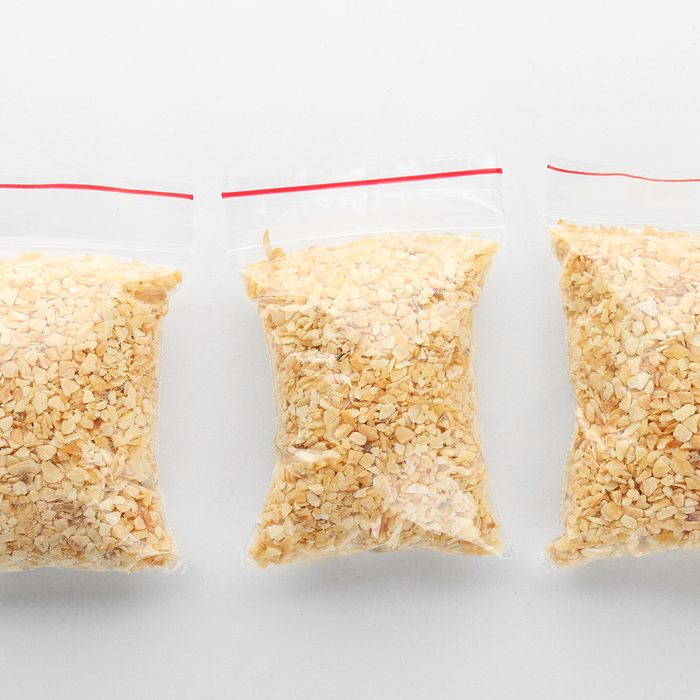
Single-use supplies
Oh, and while we’re on the subject, don’t toss those plastic bags after one use, Schneider adds. You can rinse and reuse them—she even repurposes the liners from cereal boxes for kitchen storage. Ditto paper towels—use fabric cloths or reusable bamboo paper towels instead. It’s better for the environment and your wallet.
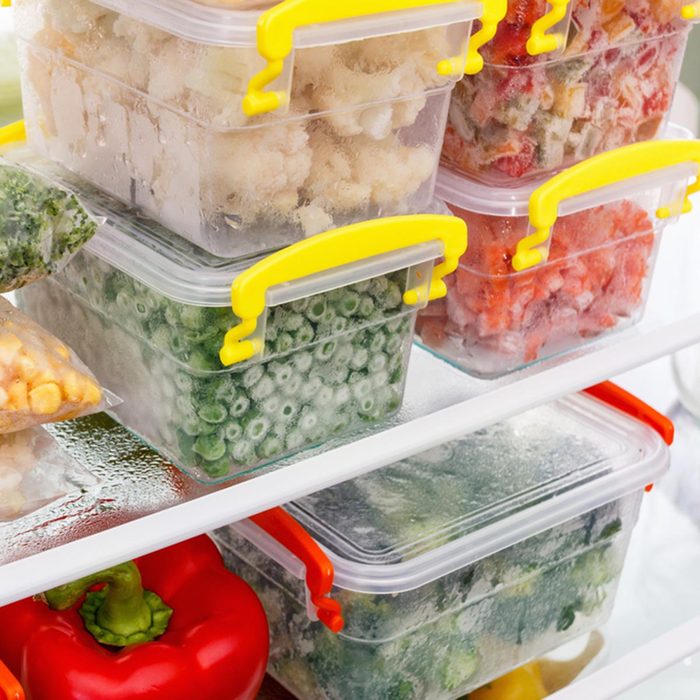
Not using your freezer
A well-stocked freezer is a frugal chef’s BFF. Not only is freezing ideal for storing bulk buys, it’s also a great way to preserve produce or other foods that are about to go bad. “Most things can be frozen if you store them properly, then thawed and used as needed,” Schneider says. Bread, leftover pasta sauce, soup and fruit for smoothies are just a few of the foods you didn’t know you could freeze.
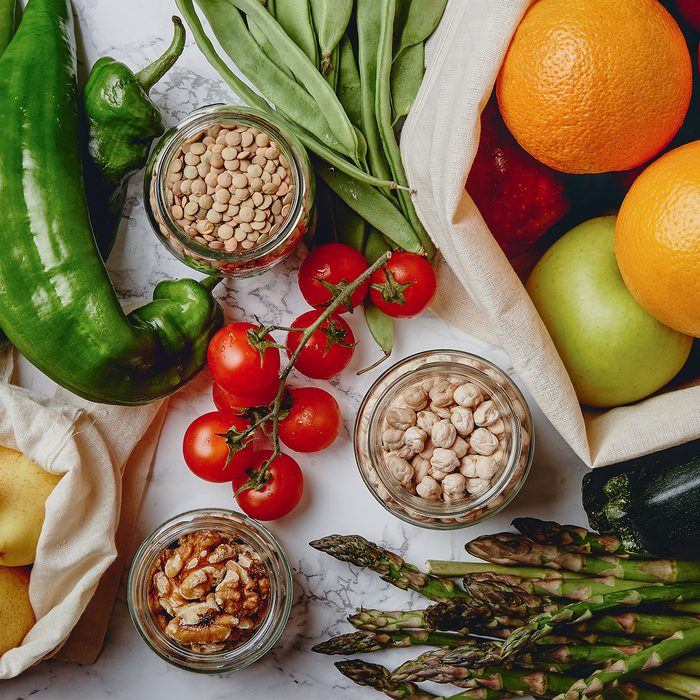
Buying ingredients for one meal at a time
“One of the first rules of saving money at the grocery store is to buy in bulk,” says Bailey. “Larger quantities equal less packaging and less waste, which means spending less money.” Non-perishables or things that can be frozen like meat are good to stock up on. Things like CSAs and cow shares can be good options for buying bulk as well, says Schneider. You can save even more by following this advice for bulk buying.
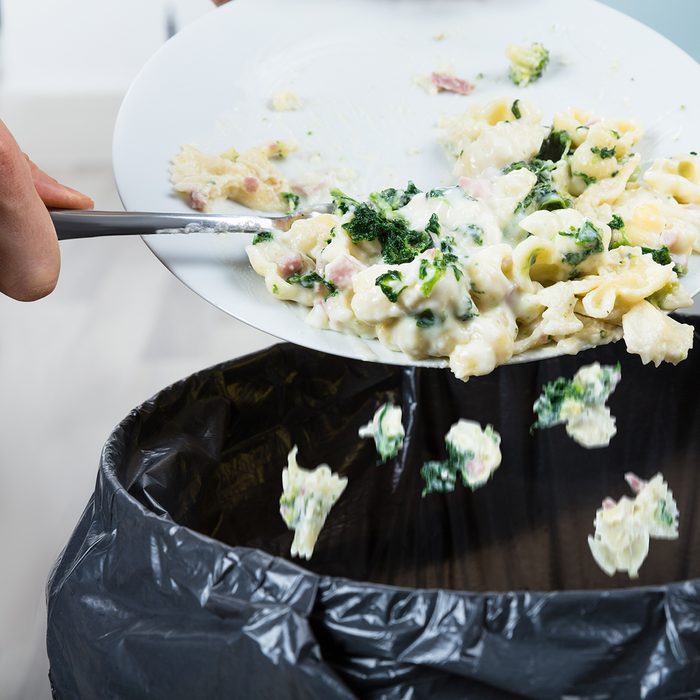
Passing on leftovers
One national survey found that two out of five people hate leftovers. We’re not sure how they got such a bad rap, but it is entirely undeserved. In addition to enjoying last night’s meatloaf and potatoes for lunch the next day, you can use ingredients that weren’t quite used up, like half a jar of salsa or cooked quinoa, to make a delicious new meal like a salad or grain bowl, rather than throw it out. “Creative uses of portions of leftover food can make for fun, money-conscious meals,” says Bailey. Here are 20 brilliant ways to repurpose leftovers.

Wasting water
It’s a common misconception to think hand-washing your dishes is the more economical choice, but energy-star rated appliances are so efficient, they can slash your utility bills by more than $40 per year. If you have them, use them. Making sure to run a full load—and there is a right way to do that—and shutting off the heat drying part of the cycle to let dishes air dry instead can increase your savings.
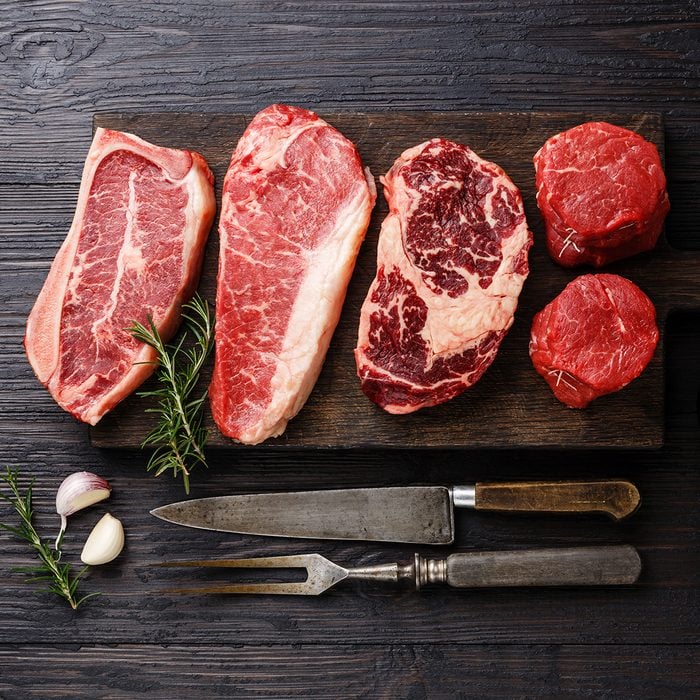
Eating too much meat
Plant-based diets tend to not only be healthier and better for the planet but less expensive, too. In one analysis, researchers compared the costs of a meat-based menu based on USDA MyPlate recommendations with a plant-based one. They found that eating a vegetarian diet could save more than $745 per year. You don’t have to give meat up if you love it, but cutting back or using recipes where you can stretch a little will help your bottom line.
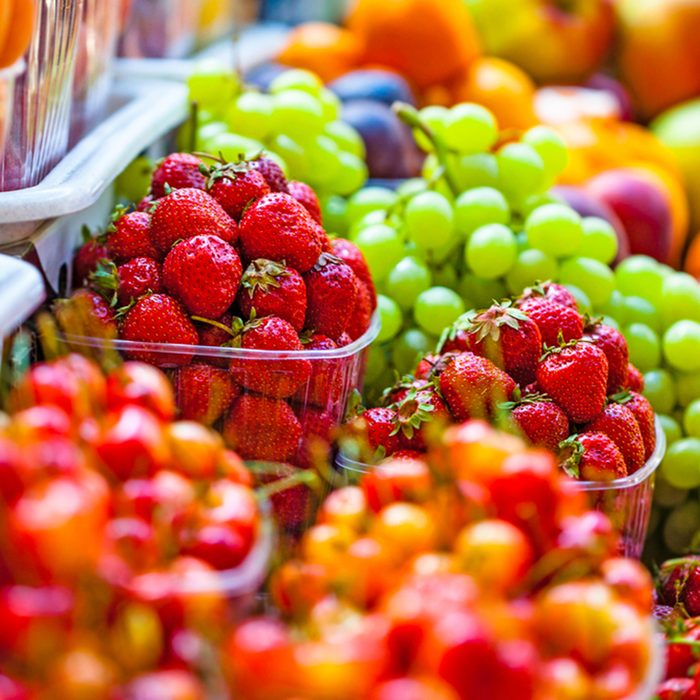
Buying out-of-season produce
Blueberries in January might sound refreshing, but you’ll pay a premium for them. Shopping with the seasons will not only save you cash, but it’s also likely to taste better too, since what you’re eating has been grown fresh naturally, not in a greenhouse somewhere and shipped miles. You can also try preserving summer picks yourself by pickling or canning to last through the off-season. Here’s when every fruit and veggie is in season.
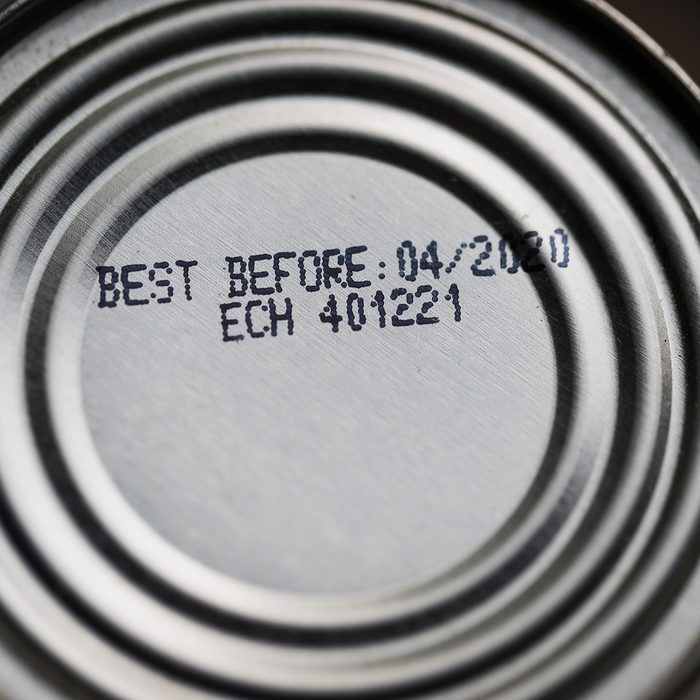
Tossing stuff because of the “best by” date
No one wants to risk food poisoning, but the dates on food labels don’t mean what’s inside is no longer safe to consume. According to the USDA’s Food Safety and Inspection Service, “except for infant formula, dates are not an indicator of the product’s safety.” If the food looks and smells okay and has been handled and stored properly, it’s generally fine to consume. Food safety questions can be directed to the FSIS virtual representative, which is available 24/7 at AskKaren.gov.
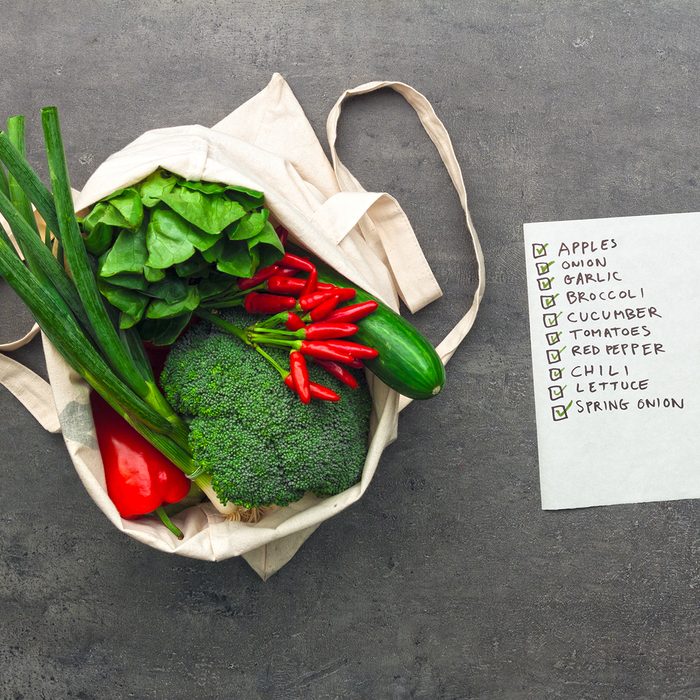
Not planning ahead
“The overarching theme is they don’t plan ahead,” says Schneider. Having a basic meal plan for the week can help you use up fresh ingredients before they go bad and reuse leftovers from one meal in the next one. It also helps prevent impulse buys at the supermarket, says Bailey. “If you aren’t sure what you are going to eat for dinner and don’t have appropriate ingredients at home, you’re more likely to overspend by making last-minute decisions that aren’t strategic money-wise.”
